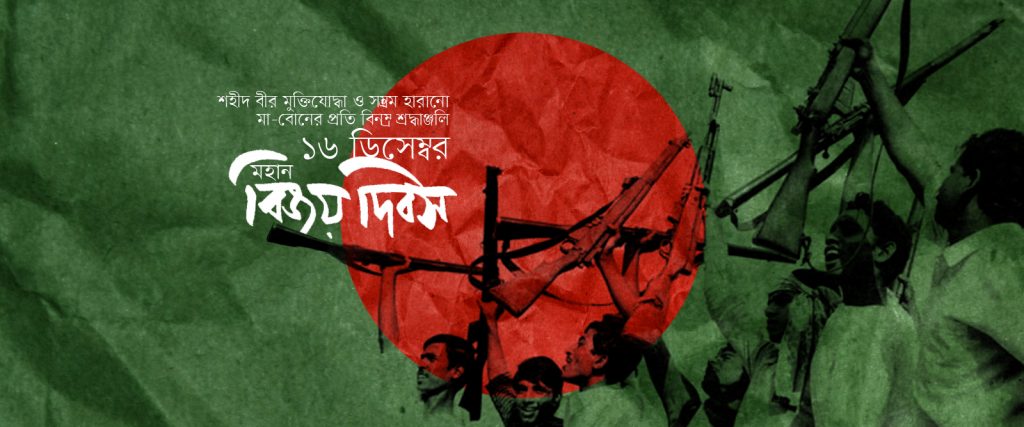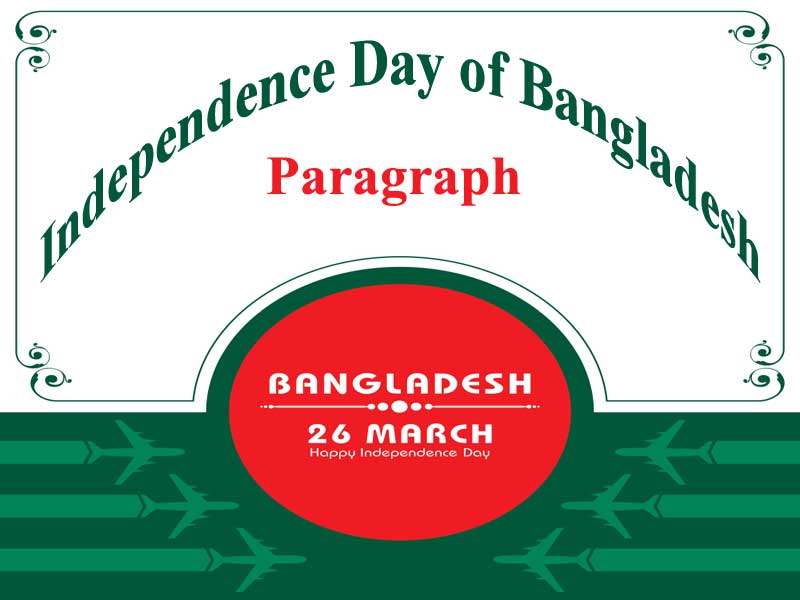

This declaration of independence marks the beginning of the Bangladesh Liberation War and is observed as Bangladesh Independence Day.

Your fight must go on until the last soldier of the Pakistan occupation army is expelled from the soil of Bangladesh and final victory is achieved.” I call upon the people of Bangladesh wherever you might be and with whatever you have, to resist the army of occupation to the last. “This may be my last message, from today Bangladesh is independent. 26 March 1971 - Declaration of independenceīefore his arrest, Bangabandhu Sheikh Mujibur Rahman called upon his people to resist Pakistani forces of occupation in a declaration that read, British journalist Simon Dring, in hiding, reported a massacre unfolding. Bangabandhu Sheikh Mujibur Rahman was arrested and taken to West Pakistan. On the night of 25 March, the Pakistani military began a violent crackdown to suppress the Bengali opposition. This year Bangladesh is also observing Bangabandhu Sheikh Mujibur Rahman's 100 birth anniversary. The ‘7 March Foundation’ was set up in 2018 to propagate Bangabandhu’s ideals. In Tower Hamlets, a school in Bethnal Green, Bangabandhu Primary, is named in his honour. In 2016 the speech was recognised by UNESCO and archived in its Memory of the World Programme. This powerful speech inspired the Bengali nation to fight for its independence. "Our struggle is for our freedom our struggle is for our independence. He urged ‘his people’ to turn every house into a fort of resistance.

On 7 March 1971, as the military and the West's political leadership was conspiring not to hand over power to Bangabandhu Sheikh Mujibur Rahman, he delivered a fiery speech at the Racecourse Ground against the ruling elite. In protest Bangabandhu initiated the non-cooperation movement against Pakistani rule in 1971. The ruling elite in West Pakistan refused to allow Sheikh Mujibur Rahman to form a government. In the 1970s general election his political party, Awami League, won a landslide victory. In 1969, at a million strong public rally in Dhaka, Sheikh Mujibur Rahman was given the affectionate title of Bangabandhu. He demanded self-autonomy for East Pakistan. Bangabandhu Sheikh Mujibur Rahman – independence leader (1920–1975)īangabandhu Sheikh Mujibur Rahman challenged the disparity between the regions. This is now a day observed globally in recognition of the martyrs and to preserve linguistic diversity. In the same year, UNESCO recognised the Bengali language movement, declaring 21 February as International Mother Language Day. The calls from community leaders prompted the council to allocate space within the park to accommodate the memorial monument. It was funded by contributions from 54 local Bangladeshi community organisations. The Shahid Minar in Altab Ali Park was erected in 1999 through a partnership between the local Bengali community and Tower Hamlets Council. Abdul Gaffer ChoudhuryĪbdul Gaffar Choudhury, journalist and Freeman of Tower Hamlets, wrote the well-known Martyr’s Day song Amar bhaier rokte rangano Ekushe February. Their destiny lay not with Pakistan but elsewhere as an independent country. The language movement led to the realisation that the Bengalis constituted a separate nation. The police opened fire, killing four students, one other person and injuring many. On 21 February, Bengali students gathered, defying Section 144. On 20 February 1952, the Pakistani Government issued Section 144, restricting gatherings and rallies. Urdu was hardly spoken by anybody in the East. This decision was unacceptable to Bengalis and led to birth of the language movement. In 1948, Mohammad Ali Jinnah, Pakistan's Governor-General, declared that "Urdu, and only Urdu" would be Pakistan's state language. 1947 – 1971 Pakistan period - Bengali language movement Political power was concentrated in West Pakistan, which led to grievances in East Pakistan (now Bangladesh). India filled the thousand miles of land between these two regions. Pakistan is comprised of two distinct areas, separated both culturally, and geographically. These were India, with a Hindu majority population and Pakistan, with a Muslim majority population. In 1947, partition gave way to two new states. The celebration starts on 26 March 2021 and ends on 26 March 2022.

This year, Bangladesh and the Bengali diaspora in the UK are celebrating the Golden Jubilee of Bangladesh's independence. Question: Bangladesh 50 Timeline – The Road to Independence Answer:


 0 kommentar(er)
0 kommentar(er)
